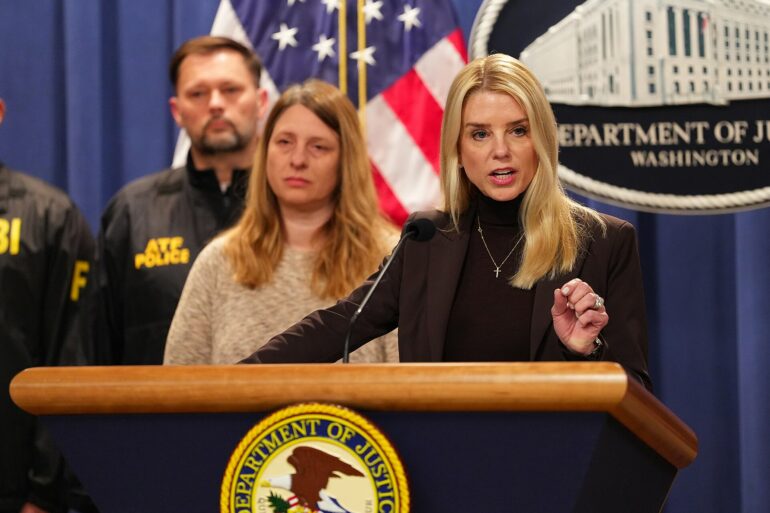In a decisive move that underscores his administration’s commitment to government transparency and public accountability, President Donald Trump on Thursday reportedly directed Attorney General Pam Bondi to seek the unsealing of grand jury records related to the federal investigation into Jeffrey Epstein.
The Justice Department followed through the next day, filing a formal motion in court requesting the release of the long-shielded documents.
“At the direction of the Attorney General, the Department of Justice hereby moves the Court to release grand jury transcripts,” the DOJ motion stated.
The filing cited “extensive public interest” surrounding the case and reiterated the administration’s stance that “transparency to the American public is of the utmost importance.”
The DOJ acknowledged in its court filing that, although it and the FBI continue to stand by their July 6 decision not to release further documents related to the Epstein investigation, the public deserves a fuller account of what occurred.
“Given the public interest in the investigative work conducted by the Department of Justice and Federal Bureau of Investigation into Epstein,” the motion explained, “the Department of Justice moves the Court to unseal the underlying grand jury transcripts… subject to appropriate redactions.”
Importantly, the DOJ emphasized that transparency would not come at the expense of the legal protections afforded to victims. “Transparency in this process will not be at the expense of our obligation under the law to protect victims,” the motion assured. As such, the DOJ said it would collaborate with the U.S. Attorney’s Office for the Southern District of New York to carefully redact personal and victim-related information before any records are made public.
The department is asking the court to recognize the Epstein and Ghislaine Maxwell matters as issues of “public interest,” arguing that the weight of national concern justifies lifting any prior protective orders.
Conspicuously, the motion was signed only by Attorney General Pam Bondi and Deputy Attorney General Todd Blanche.
No career prosecutors from the Southern District of New York — the office that originally handled the Epstein case — attached their names to the filing, reflecting perhaps a shift in tone and direction from federal leadership under Bondi.
The court filing came just hours after President Trump took legal action of his own, filing a libel lawsuit against The Wall Street Journal, Rupert Murdoch, and others involved in a recent article alleging Trump once sent a lewd birthday greeting to Epstein.
That article, now the subject of intense scrutiny, has prompted fierce backlash from Trump allies and sparked renewed calls for a full accounting of the Epstein saga.
For many conservatives, the DOJ’s decision to pursue the release of Epstein grand jury materials marks a long-overdue step toward exposing the full scope of corruption and elite privilege long believed to be buried in sealed files.
With President Trump once again seizing the initiative, the move could signal a broader reckoning with how politically sensitive investigations have been conducted—and concealed—by institutions once trusted to deliver justice.
[READ MORE: CBS Announces End of Stephen Colbert and the ‘Tonight Show’]



